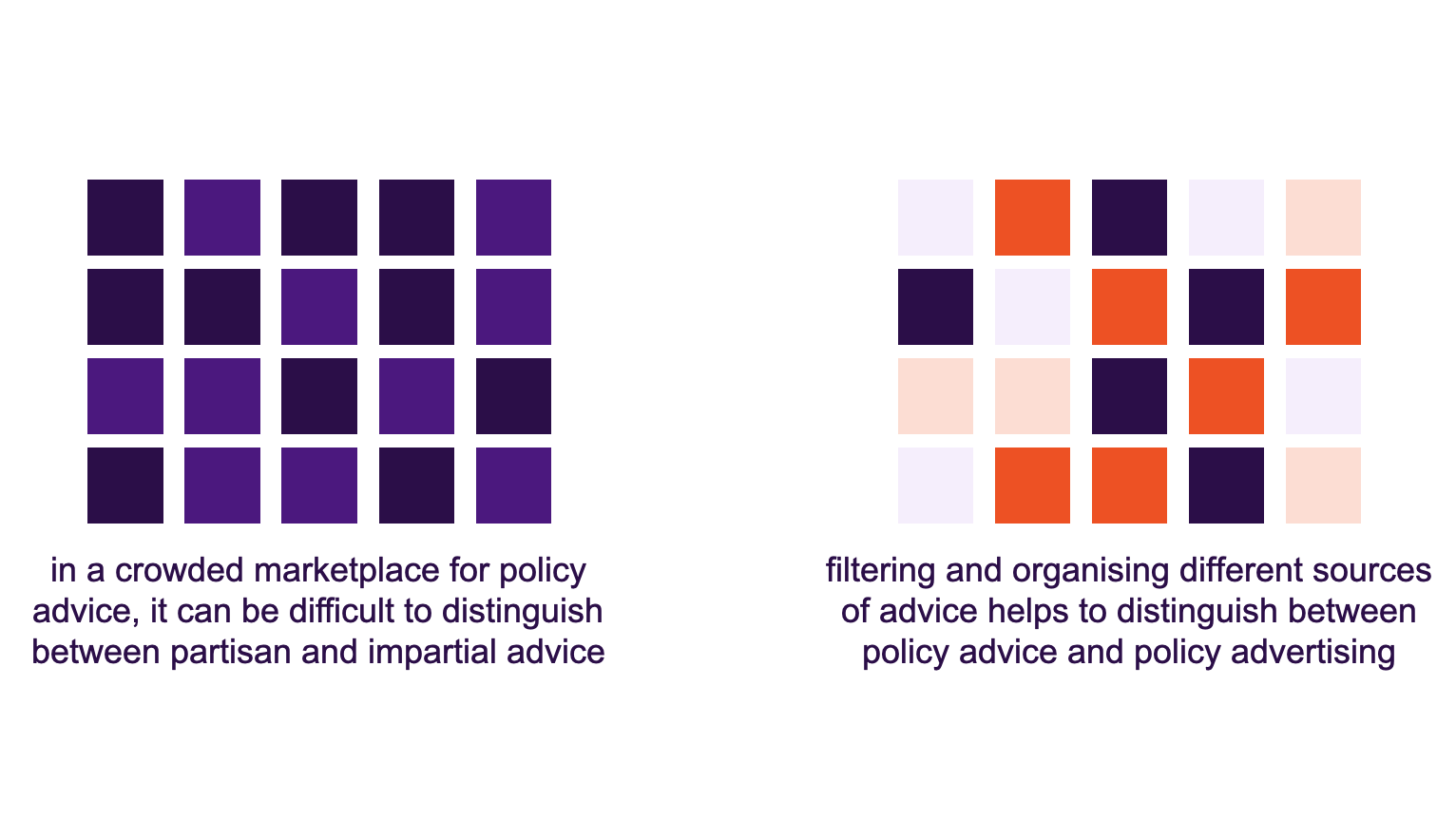In an information-rich world, sponsored content seems to be everywhere, and is not always easy to recognise. Resource-strapped news publishers are more likely to promote unverified media releases, and resource-strapped publicly funded organisations are more likely to rely on, or be displaced by, partisan policy positions. As the volume increases, how can we filter quality policy advice from vast quantities of thinly veiled policy advertising?
Decision makers are bombarded by a cacophony of sources offering unsolicited advice to inform, or influence, policy decisions. Non-government sources of analysis and advice, like private think tanks, industry groups, and lobbyists, tend to invest more resources in niche policy issues than publicly funded organisations, which need to balance their roles as policy analysts with pressing operational priorities.
Publicly funded policy analysts work hard to be fair, rigorous, and nuanced, while private and partisan analysts work hard to persuade decision makers to adopt a particular point of view. Sponsored policy advice is also cheaper than publicly funded analysis, often delivered proactively, free of charge. That can be an attractive alternative to funding independent advice.
Just like sponsored media content can look a lot like independent journalism, partisan policy advice often presents itself like rigorous analysis. Vested interests dressed up to look like public interest can create a misleading and inaccurate perception of impartiality.
In a crowded market for policy advice, it is easy for well-resourced private interests to drown out publicly funded analysts. This can become a self-reinforcing cycle. Why invest public funds in robust independent analysis when so much advice is available for free?
Decision makers can come to rely on partisan advice, without recognising its limitations or give too little consideration to other perspectives. Doing so risks mistaking assertive self-interest for the public interest.

Few publicly funded organisations have the resources to out-spend sponsored vested interests. But many can get more bang from their limited resources by working smarter in the market for policy ideas. Rather than competing as one voice among many, publicly funded organisations can position themselves as curators and guides to the endless feed of noise.
As policy stewards, publicly funded organisations can monitor and draw on all sources of advice, including internal sources, reputable external sources, and partisan sources. They can identify gaps to plug, credible sources to amplify, and myths to debunk. They can also signpost the risks and limitations of partisan advice, like flags for suspicious or inaccurate content used to warn readers on social media.
By engaging with and assessing content from all relevant sources, amplifying what is useful, and flagging what is risky, publicly funded organisations shift from being primarily creators of policy content, to being primarily stewards of policy content. Instead of adding to the noise that overwhelms decision makers, they can help to contextualise, organise, and streamline that noise into clear, actionable signals.
Helping decision makers to filter and navigate the strengths and weaknesses of different sources of advice, and bridging any gaps with independent analysis, maximises the value of scarce public resources to inform better policy decisions. It also reduces the risk of busy decision makers being misled by the false advertising claims of sponsored policy content dressed as policy advice.
